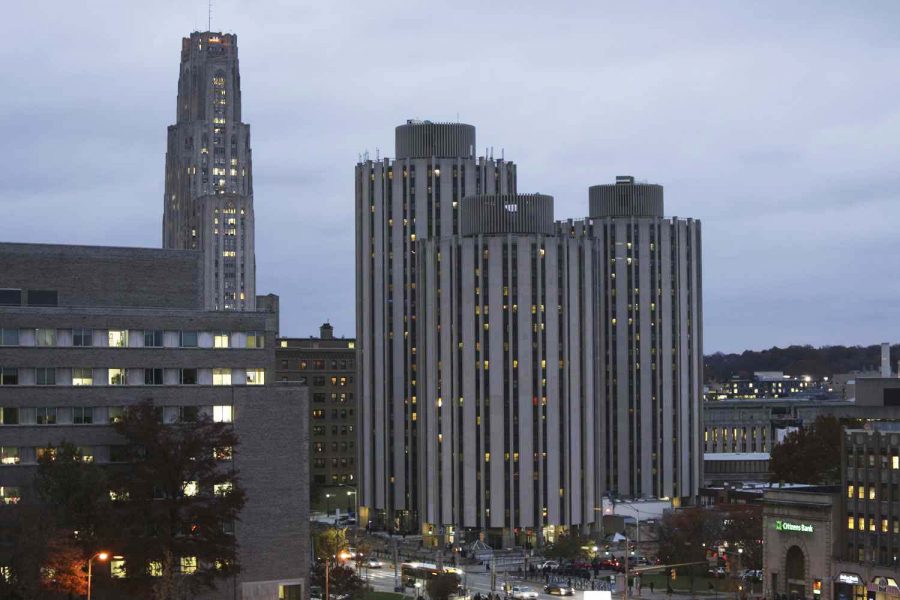Board approves student activities fee increase
June 30, 2004
Pitt’s board of trustees approved increases in the student activities fee last Friday, in an… Pitt’s board of trustees approved increases in the student activities fee last Friday, in an effort to keep up with the needs of the student body and in accord with a recommendation from Student Government Board.
Jeanne Gleason, the representative of the Student Affairs Committee of the board of trustees, reported that, during “the past five fiscal years, there has been a substantial increase in the amount of money requested by student organizations, due to an increase in student participation and the general financial climate.”
In response, the board of trustees approved fee increases, endorsed by Vice Provost for Undergraduate Studies and Dean of Students Jack Daniel, for full-time, non-College of General Studies students from $60 to $80, and for part-time, non-College of General Studies students from $18 to $24 in each fall and spring term, effective fall term 2004.
The board approved a similar increase for the graduate student activities fee, which will change from $10 to $20 for full-time students and from $5 to $10 for part-time students.
The committee noted that this is the first time in five and 10 years, respectively, that the undergraduate and graduate fees have been increased. Although the increases will mean higher costs for Pitt students, SGB President Brian Kelly expressed pleasure that the board had supported SGB’s recommendation.
“I am very happy with the board’s decision to approve our resolution,” Kelly said. “We have worked for over a year, and now we have finally achieved results.”
But while the board of trustees has the power to approve the fee changes, Daniel has the responsibility of determining how the money will be distributed among groups such as Pitt Program Council, WPTS, TeleFACT and Student Volunteer Outreach.
SGB passed a resolution last semester suggesting a plan for disbursing the money, and Kelly has scheduled a meeting with Birney Harrigan, the associate dean of Student Affairs, this Thursday to discuss how the money will be distributed. Kelly said that he does not foresee any problems at this time regarding the approval of SGB’s resolution. Both Daniel and Harrigan were unavailable for comment, as Daniel is out of the office until September and Harrigan is out of the office until Thursday. The Office of Public Affairs did not return a call to comment on the passing and allocation of increased student activities fees.
The board of trustees also highlighted the academic and fiscal achievements of the University. Addressing the members of the board in the William Pitt Union during the June 25 meeting, Chancellor Mark Nordenberg cited the progress Pitt has made during the past year and noted academic achievements.
Speaking about the undergraduate student body, Nordenberg said that applications for fall 2004 have increased 8 percent since last year, and more than doubled since 1995. The projected average SAT score for incoming freshmen has also increased, from 1213 in 2003 to 1237 for 2004.
“The people of the University of Pittsburgh continue with the process of building a better institution, a better community, a better nation and a better world,” Nordenberg said. “In terms of achievement, impact and recognition, it has been an historic year for this institution.”
Nordenberg went on to enumerate the awards earned by Pitt’s faculty this year. A record six out of the 64 new national members elected to the American Society of Clinical Investigators were Pitt faculty, marking the first time in the history of the society that six members came from a single academic institution. Included among other honors are the Andrew Mellon Fund award of $1.5 million to Robert Brandom, professor of philosophy; a Guggenheim Fellowship award to Toi Derricotte of the English department; and the election of two members of the faculty — Susan Amara, chair of the department of neurobiology in the School of Medicine, and Robert Drennan, in the department of anthropology — to The National Academy of the Sciences. Peter Strick, of the department of neurobiology, was elected to the American Academy of the Arts and Sciences, which boasts a membership of 150 Nobel laureates and 50 Pulitzer Prize winners.
Several prominent Pitt alumni were also recognized for their achievements. Paul Lauter, who earned his doctorate in chemistry at Pitt, won the 2003 Nobel Prize in medicine, and Herbert Boyer, who earned both his Masters degree and doctorate in bacteriology at Pitt, was awarded the Shaw Prize in Life Sciences and Medicine.
Albert Novak Jr., the vice chancellor for Institutional Advancement, indicated that similar praise can go to the University’s fund-raising efforts. Novak reported to the University trustees that Pitt’s “Discover a World of Possibilities” campaign, begun in 1997, is “ahead of pace” and has raised $705 million to date.
“While national giving trends have floundered over the past year, 2003 has been the best fund-raising year in the history of the University,” Novak said.
Contributions in 2003 increased by 25 percent from those of 2002.
Also at the annual meeting, the board approved resolutions proposed by the nominating committee to elect and re-elect members of the board of trustees. Pennsylvania Supreme Court Chief Justice Ralph J. Cappy was re-elected as chairman of the board and Dan Onorato, chief executive of Allegheny County, was approved as a non-voting member of the board.


